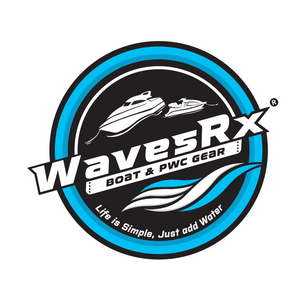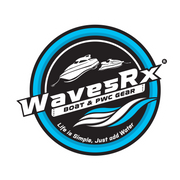Choosing the Perfect Boat Fenders: A Comprehensive Guide for Boaters
When it comes to boating, one of the most essential accessories to have onboard is boat fenders, which offer protection for your vessel during docking, mooring, or when you're tied up alongside another boat. With a plethora of options available in the market today, it can be a daunting task to choose the perfect fenders for your boat, jet ski, or PWC. But worry not, because we're here to help you find the best-suited fender for your needs and ensure smooth sailing!
Boat fenders serve as protective barriers that absorb the kinetic energy generated when your boat comes into contact with a dock or another vessel. They prevent possible damage caused to the hull's exterior, like scratches or dents, helping maintain the appearance and integrity of your boat. With the advancements in modern materials and design techniques, fenders have become even more effective and durable, making them an indispensable accessory for every boater.
In this comprehensive guide about choosing boat fenders, we'll dive into the different types of fenders available, along with their materials, shapes, and sizes. We will also discuss some important factors to consider before investing in a fender, ensuring that you pick the right product to keep your vessel safe and sound.
The Different Types of Boat Fenders
1. Cylindrical Fenders: These are the most traditional and widely used fender types. They can be hung horizontally or vertically, providing versatility for use. Their design allows for optimal low-speed impact absorption, making them an excellent choice for smaller boats or when used in combination with other fender types.
2. Round Fenders: Also known as ball fenders, these fenders offer exceptional impact protection due to their spherical shape. Round fenders distribute pressure evenly across a wide surface area, making them suitable for larger vessels or situations where repeated contact may occur.
3. Flat Fenders: As their name suggests, flat fenders provide a broad, flat surface for protection. They're ideal for use on boats with a square or flat hull design and can be conveniently stowed away when not in use. Flat fenders allow for significant impact energy absorption, making them perfect for protecting both your vessel and nearby structures.
4. Specialty Fenders: These fenders are designed for a specific purpose or application, such as transom or corner fenders. For instance, transom fenders are designed to protect your boat's sensitive stern area, whereas corner fenders are used to shield the corners of your boat during docking maneuvers.
Understanding Fender Materials
1. Inflatable Vinyl: Vinyl provides a cost-effective option for those looking for an inflatable fender. With excellent shock absorption and the ability to deflate for storage, vinyl fenders are ideal for temporary or occasional use. However, they may not offer the same level of durability as other materials, so they often require more frequent replacement.
2. Closed-Cell Foam: These fenders provide a durable, lightweight alternative to inflatable fenders. The foam is non-absorbent, so they won't become waterlogged like some inflatable options. Closed-cell foam fenders are resistant to UV damage and will not deflate, making them an excellent choice for long-term use.
3. Rubber: Known for its outstanding durability, rubber fenders can withstand harsh marine environments and wear and tear from prolonged use. They offer excellent shock absorption and weather resistance but can be relatively heavy. They often require specialized mounting options, so keep that in mind when choosing rubber fenders.
Fender Sizing and Application
1. Boat Size: The size and weight of your boat play a crucial role in determining the correct fender size and quantity. For instance, a small sailboat may only need a couple of small cylindrical fenders, while a large powerboat may need multiple large round or ball fenders for adequate protection. As a general rule, use one inch of fender diameter for every four to five feet of boat length.
2. Docking Conditions: Consider the conditions your boat will be subjected to when selecting fenders. If you typically dock at a well-protected marina with calm water, you might need fewer and smaller fenders. However, if you often find yourself in exposed areas with rough waters or heavy boat traffic, investing in larger and more fenders can help prevent damage.
3. Mooring Versus Docking: Mooring and docking present different challenges when it comes to protecting your boat. When moored, your vessel is more prone to movement due to wind, current, and waves. Therefore, you may require more fenders for effective protection. During docking, the focus lies on protecting your boat's sides and corners, so well-placed cylindrical, flat, or specialty fenders can be the best combination.
Additional Tips for Fender Usage
1. Ensure Proper Inflation: Inflatable fenders work best when inflated to the correct pressure. Over-inflating can reduce their ability to absorb shock, while under-inflation can lead to premature wear and reduced protection.
2. Regular Inspection and Maintenance: Regularly inspect your fenders for damage or wear and tear. If you notice any issues, be sure to address them promptly. Cleaning and protecting your fenders with UV protectant, for example, can help extend their lifespan.
3. Correct Placement: Ensure fenders are positioned correctly along your boat and at the proper height to adequately protect the most vulnerable areas of your vessel.
Conclusion
Boat fenders play a vital role in protecting your vessel from potential damage during docking, mooring, or any time your boat comes into contact with another object or vessel. By understanding the different types, materials, and applications, you can make an informed decision about which fenders are best suited for your needs. Regular inspection, maintenance, and correct placement of your fenders will help you extend the life of your investment and, ultimately, your boat.Choose WavesRx for all your premium marine accessory needs, including top-quality anchors, trailer tie-down straps, docking line, marine ropes, and the perfect boat fenders for your vessel. Protect your boat and enjoy worry-free boating with our unbeatable selection!



